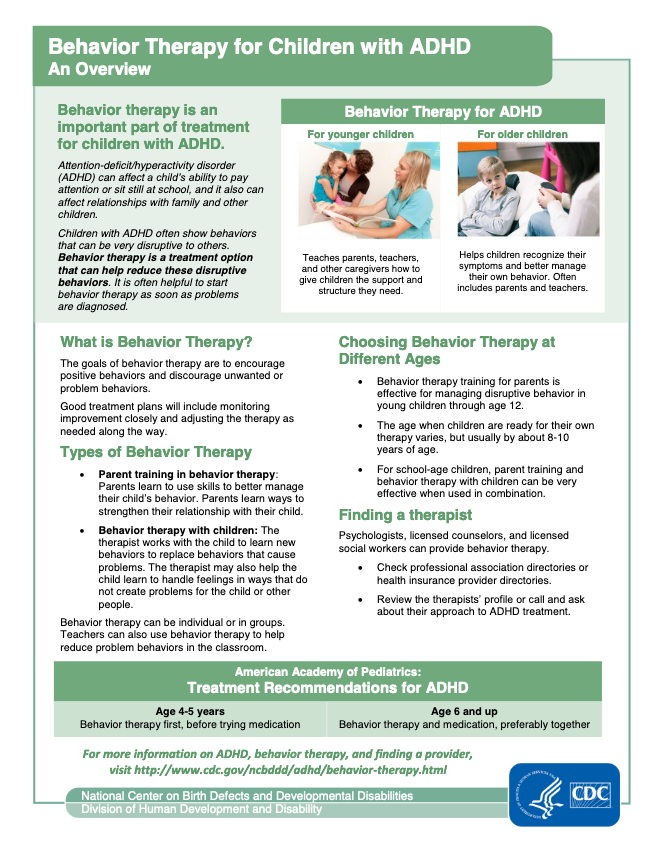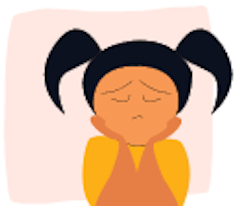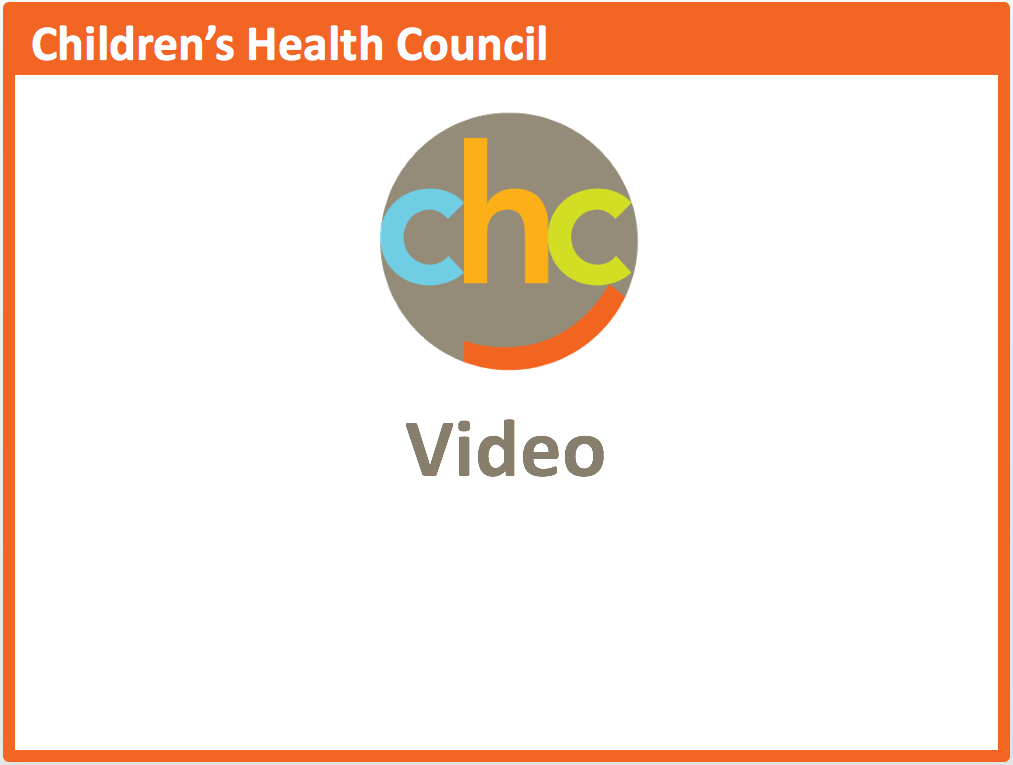 Attention-deficit/hyperactivity disorder (ADHD) can affect a child’s ability to pay attention or sit still at school, and it also can affect relationships with family and other children.
Attention-deficit/hyperactivity disorder (ADHD) can affect a child’s ability to pay attention or sit still at school, and it also can affect relationships with family and other children.
Children with ADHD often show behaviors that can be very disruptive to others. Behavior therapy is a treatment option that can help reduce these disruptive behaviors. It is often helpful to start behavior therapy as soon as problems are diagnosed.
What is Behavior Therapy?
The goals of behavior therapy are to encourage positive behaviors and discourage unwanted or problem behaviors.
Good treatment plans will include monitoring improvement closely and adjusting the therapy as needed along the way.
Types of Behavior Therapy
- Parent training in behavior therapy: Parents learn to use skills to better manage their child’s behavior. Parents learn ways to strengthen their relationship with their child.
- Behavior therapy with children: The therapist works with the child to learn new behaviors to replace behaviors that cause problems. The therapist may also help the child learn to handle feelings in ways that do not create problems for the child or other people.
Behavior therapy can be individual or in groups. Teachers can also use behavior therapy to help reduce problem behaviors in the classroom.
Choosing Behavior Therapy at Different Ages
- Behavior therapy training for parents is effective for managing disruptive behavior in young children through age 12.
- The age when children are ready for their own therapy varies, but usually by about 8-10 years of age.
- For school-age children, parent training and behavior therapy with children can be very effective when used in combination.
Finding a therapist
Psychologists, licensed counselors, and licensed social workers can provide behavior therapy.
- Check professional association directories or health insurance provider directories.
- Review the therapists’ profile or call and ask about their approach to ADHD treatment.
Download a PDF of this fact sheet.
Source: Centers for Disease Control and Prevention | Treatment of ADHD, https://www.cdc.gov/adhd/treatment | Public domain. Last reviewed May 2024.







